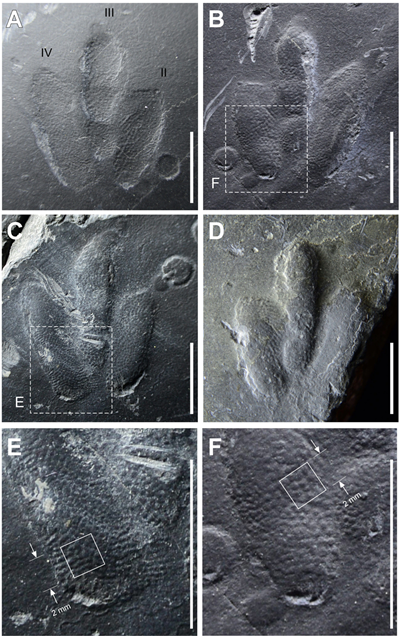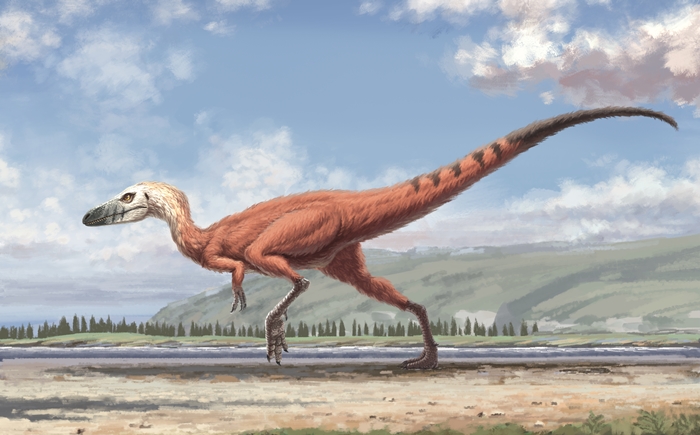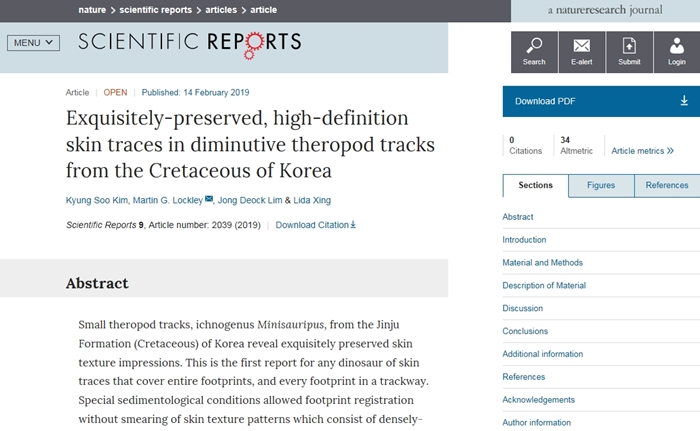
A report published in Scientific Reports on Feb. 14 shows photos of footprints of a small dinosaur from the suborder Theropoda with well-preserved skin traces in Jinju, Gyeongsangnam-do Province. (Scientific Reports)
Footprints of a small dinosaur from the suborder Theropoda featuring skin traces have been found for the first time in Korea in Jinju, Gyeongsangnam-do Province.
Korea Institute of Geoheritage, an affiliated organization of Chinju National University of Education, on Feb. 19 said it published in Scientific Reports, a sister journal of Nature magazine, the results of its study on small theropod tracks formed during the Cretaceous period around 144 million years ago.
The footprints were identified as being those of Minisauripus, a theropod whose fossils have been found only in Korea and China, from the Lower Cretaceous period. Among the five footprints discovered, the four consecutive footprints showed the tracks of the dinosaur as well as skin texture patterns with densely packed and reticulate arrays of under 0.5 mm polygons.
The footprints were found in Jinju, one of three regions in Korea where many dinosaur fossils have been found along with Goseong-gun County, Gyeongsangnam-do Province, and Haenam-gun County, Jeollanam-do Province.
Lim Jong-deock, head of the Research Division of Restoration Technology at the National Research Institute of Cultural Heritage in Daejeon who took part in the study, said, "Jinju has had the most dinosaur footprints discovered in the world per unit area," adding, "This area had a lake 110 million years ago and thus provided various prey for dinosaurs and soft sand, the best conditions for fossilization."

An artist’s impression of a Minisauripus. (Wang Zifeng)
The research team also said, "The average length of the five footprints is 2.4 centimeters, so we could estimate the size of the Minisauripus’s body at 28.4 centimeters," adding, "Dinosaur footprints with skin impressions are very rare as they account for under 1 percent of such footprints. We learned how the Minisauripus moved through this research."

The homepage of the journal Scientific Reports on Feb. 14 displays the results of Korean research on the footprints of the small dinosaur Minisauripus found in Jinju, Gyeongsangnam-do Province. (Screen Capture from Scientific Reports)
SOURCE: KOREA.NET


